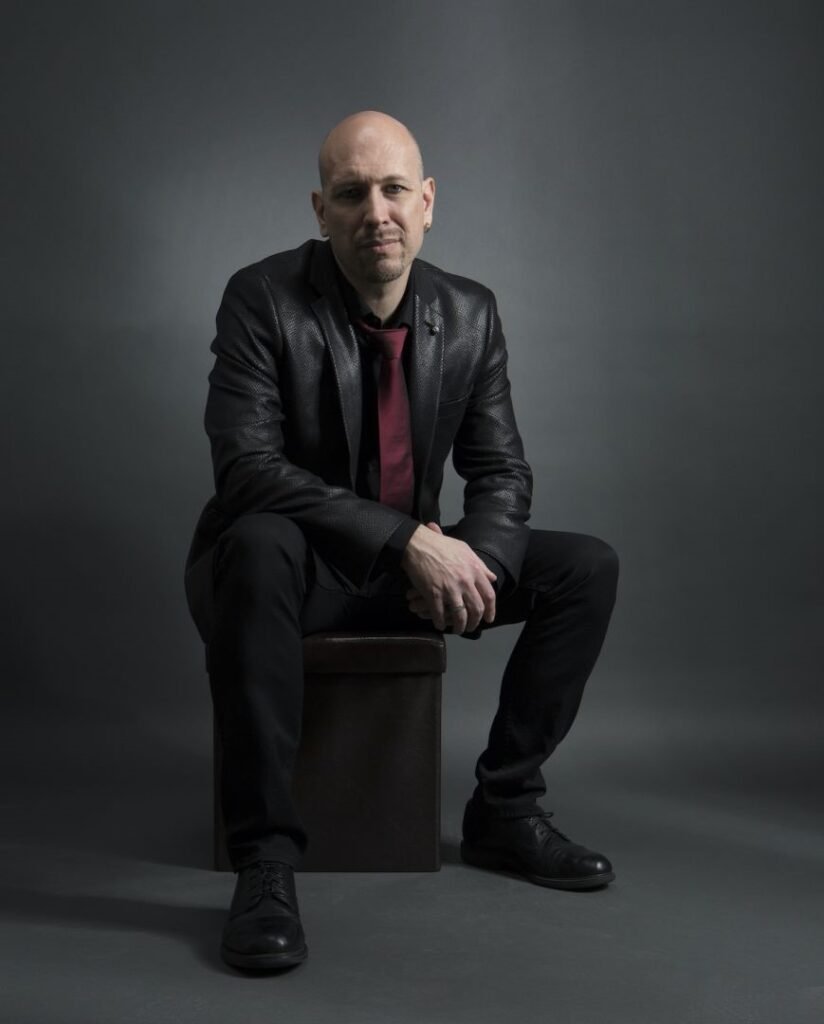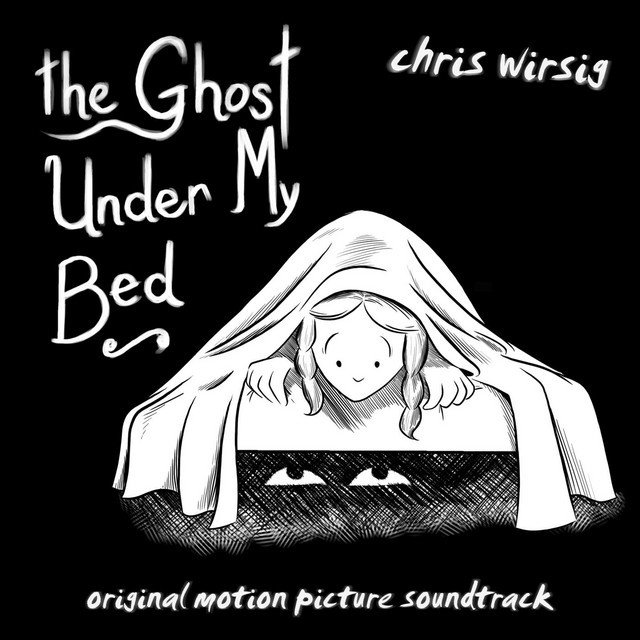Chris Wirsig is a Grammy-winning composer, songwriter, and producer who studied audio engineering and had classical training on the piano and saxophone. His music can be heard in games such as the acclaimed Top Ten iPad game “Alien Tribe 2,” the multiple award-winning short films “Intervention,” “20 Matches,” “Cat Dexx: Inkosi,” and “Trick Of The Old Cat,” the comedy feature film “39 And A Half,” and numerous TV shows on ABC, E!, MTV, Fox Sports, Audience Network/DirecTV, amongst others.
Current and upcoming projects include the pilot for a tech-horror web series titled “Glitch,” an LGBTQ+ animated comedy series titled “Be More Popcorn,” the vampire drama “The Things We Cannot Change,” the cyberpunk boxing drama “Steel Will,” and a charity project featuring an orchestral cover of “People Are People” by Depeche Mode.
Chris is a Grammy Voting Member, a member of the Production Music Association, and a member of the Society Of Composers and Lyricists, for which he served as LA Administrator for two years and is now a Board Member. He established the acclaimed Electro Pop/Dark Wave band no:carrier in 1995 and the Electronica/Chill-Out project Virtual Conformity in 2001, in addition to a number of side projects. He also co-writes and produces songs with numerous other musicians and composers, including Sweetblade, Psyche, Juliet Lyons, BRIANA CASH, Daniel E. Wakefield, Liza Marie Sparks, Queen Chameleon, The Dust Ryde, and Echoekill.
THE GHOST UNDER MY BED is a beautiful stop-motion animated tale set in the American South during the era of slavery. Telling the dramatic, at times sad, but charming tale of a Boston girl who had to go to a farm in the South and become friends with the ghost under her bed, who turns out not to be a ghost but a real person. The music he composed for the film oscillates between beautiful pieces and amusing spookiness, at times recalling “Beetlejuice” or other compositions by composer Danny Elfman. Check out the OST and the exclusive interview below:

1. Can you tell us a bit about where you come from and how it all got started?
CHRIS WIRSIG: I was growing up in a small town in Germany, but it had a really good music school where I got my first education on piano and later saxophone, playing all sorts of different music. Somehow I was always interested in quite different styles, from rock to pop to film music. I remember that as a kid, having piano lessons, I came up with my own instrumental track as a kind of soundtrack to one of my comic books. Nothing special, more a dark vibe playing a few deep notes. That interest in creating music probably was always there. Later I listened to more and more different stuff, and got more into really writing music. Starting on a Commodore Amiga home computer with simple tracks.
2. Did you have any formal training or are you self-taught?
CHRIS WIRSIG: Apart from piano and saxophone lessons, I also studied audio engineering, because I was always interested in the full process of creating music – from writing to producing the final track. Really including the studio and all the equipment into the writing process. I also self-taught me more stuff. I think as an artist you never stop learning anyway (and you shouldn’t), so you always evolve and get better. I think it was the cellist Pablo Casals who was asked why he’s still practicing his instrument at age 80 – he said: “Because I think I’m making progress.”
3. Who were your first and strongest musical influence?
CHRIS WIRSIG: I started more with pop music, but was always drawn to the more dramatic or melancholy songs by artists like Pet Shop Boys, Erasure, Depeche Mode, lots of typical New Wave tracks. Soon I was also into rock with bands like Queen, Pink Floyd, Dire Straits, and then of course came Nine Inch Nails whose debut album “Pretty Hate Machine” really blew my mind. But there are many other influences. On the instrumental side there are of course Tangerine Dream, Vangelis, Jean-Michel Jarre, Art Of Noise… But I also like to get influences from all sorts of genres.
4. What do you feel are the key elements in your music that should resonate with listeners, and how would you personally describe your sound?
CHRIS WIRSIG: I definitely have an affinity for darker, dramatic or melancholy music. I think that surely resonates with listeners. I probably have developed a good sense what to do with darker themes in music and how to create these emotions with sound. On the other hand, I’ve recently branched out more – from whimsical, even romantic music for some movies to more comedic styles. I always love when I’m challenged by a project, and if I can learn new styles and incorporate new instruments that I haven’t used before. I definitely love to bring unusual elements to songs and instrumental pieces, giving them their own vibe to standout.

5. Creative work in a studio or home environment, or interaction with a live audience? Which of these two options excites you most, and why?
CHRIS WIRSIG:
I like both, although I’m more of a studio person. Probably because in the studio I’m usually alone and can try things, experiment with sounds and make mistakes without anyone knowing ;) The writing and producing process in the studio is definitely my favorite. But I also enjoy performing music live, although I haven’t done it in some years. I recently was drafted to play keyboards in the epic metal band Angels On The Battlefield by my friend JD McGibney. Rehearsing with the band has brought me back to wanting to do more live shows again. I especially hope to bring my electronic instrumental music to the stage as soon as possible. That just needs a lot of preparation…
6. What’s your view on the role and function of music as political, cultural, spiritual, and/or social vehicles – and do you try and affront any of these themes in your work, or are you purely interested in music as an expression of technical artistry, personal narrative, and entertainment?
CHRIS WIRSIG:
I think music plays an important part in bringing messages across. It can be very soothing and relaxing, but also exciting, energizing and aggressive. Music is a (maybe the only) universal language, and even with different genres and musical cultures it’s understood around the world. When writing I’m not necessarily thinking about that aspect, but I had some projects in the past where the political and cultural aspect was very present: I produced an orchestral rock cover version of Depeche Mode’s “People Are People” with 36 musicians and singers who all recorded in their home studios as it was at the height of the pandemic. The background for this were the BLM protests after the horrible murder of George Floyd – I wanted to support the movement for equality and human rights. The other one was just recently and has another tragic event at its core, the war on Ukraine. My director friend Eugene Khazin, who was born in Ukraine and still has family there, asked me to produce a heavy metal cover of Ukraine’s National Anthem to raise awareness and get people to donate to the Red Cross to help the victims of the war.
7. Do you feel that your music is giving you back just as much fulfillment as the amount of work you are putting into it or are you expecting something more, or different in the future?
CHRIS WIRSIG:
Most times I really enjoy writing and producing music, and feedback is most positive. Also, when seeing a movie or TV show coming to live with your own music is always so rewarding. So I would say it definitely gives me as much fulfillment.
8. Could you describe your creative processes? How do usually start, and go about shaping ideas into a completed song? Do you usually start with a tune, a beat, or a narrative in your head? And do you collaborate with others in this process?
CHRIS WIRSIG:
That’s different with the type of project. For film or TV score, the characters and their actions are a big inspiration for the music. Film score is supporting the emotions, dialog and actions in a film, so it has to be on spot but not overwhelming or distracting from a scene. For songs I often just start with the music and then bring in a lyricist and artist to write lyrics and record vocals. Or I choose lyrics from my own pile of unused ones. But I really like the collaborations, as you’re forced to sometimes compromise, which usually brings in new ideas and makes the final song even better than what you would have done on your own. I’m lucky to have some great collaborators in that field.
9. What has been the most difficult thing you’ve had to endure in your life or music career so far?
CHRIS WIRSIG: I’m often quite impatient, so the waiting and hoping until a project is starting, or until I can tell the world about it, can be quite hard sometimes. But the real challenge, and I’m sure that goes for most artists, is that it’s often an unsure business – it can be a struggle, and most people I know (including me) are never totally sure if their work is good enough. I guess we all suffer from impostor syndrome…
10. On the contrary, what would you consider a successful, proud or significant point in your life or music career so far?
CHRIS WIRSIG: I think I’m most proud of musical achievements. When I had to adapt and learn new things, or was forced to branch out into other styles and broaden my own writing style, learned to work with new instruments. This ever ongoing learning process is what keeps it interesting and what makes it fun. Staying curious is probably the most important thing for composers and songwriters, and I hope to stay curious for a long time.
KEEP IN TOUCH:
FACEBOOK | INSTAGRAM | TWITTER | SPOTIFY | BANDCAMP | WEBSITE | YOUTUBE

